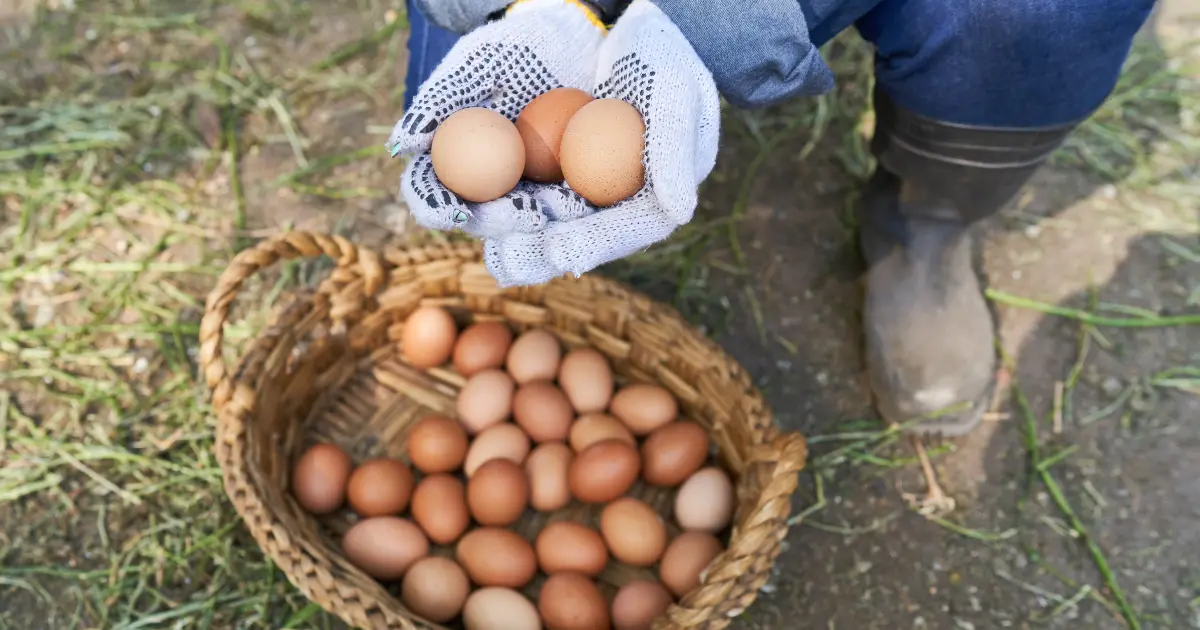Egg prices have fluctuated significantly over the past few years due to various factors such as supply chain disruptions, inflation, and avian flu outbreaks. As of 2024, the average cost of a dozen eggs in the United States is around $3.30. However, this price can vary widely depending on location, egg type, and market conditions. For example, in states like California and New York, the price of eggs can be higher, averaging around $3.99 per dozen, while in the Midwest, such as in Missouri, prices are generally lower, averaging about $3.10 per dozen.
Factors Affecting Egg Prices
Regional Variations:
Egg prices can fluctuate significantly based on location. For example, in states like Hawaii, eggs can cost as much as $3.99 per dozen, while in states like Missouri, they can be as low as $3.10. These differences are due to factors like transportation costs, local demand, and production levels. The average national price for cage-free large white eggs in 2024 was around $3.30 per dozen, slightly lower than the $3.34 average in 2023, indicating some stabilization in the market.
Organic and Specialty Eggs:
The type of eggs you buy also impacts the price. Organic and free-range eggs are typically more expensive due to the higher costs of production. In 2024, these eggs ranged from $2.00 to $4.00 per dozen, depending on the brand and location. This price range is comparable to 2023, though slight regional variations can be observed.
Market Fluctuations:
Egg prices are also influenced by market conditions. For instance, the avian flu outbreak in 2022 caused a significant spike in prices as millions of laying hens were affected. Although prices have stabilized in 2024, they remain higher than pre-2022 levels. The average price for eggs has seen a slight decrease from 2023 to 2024, but fluctuations are still present due to ongoing adjustments in supply and demand across different regions.
Organic and Specialty Eggs:
The type of eggs you buy also impacts the price. Organic and free-range eggs are usually more expensive due to the higher costs of production. These eggs can range from $4 to $7 per dozen, depending on the brand and location.
Price Of Farm Fresh Eggs 2024
| Region | Egg Type | Price Range 2024 (USD/Dozen) | Average Price 2024 (USD/Dozen) |
| National | Cage-Free Large White | $2.00 – $4.00 | $3.30 |
| NE | Cage-Free Large White | $2.00 – $4.00 | $3.36 |
| SE | Cage-Free Large White | $2.98 – $3.99 | $3.36 |
| MW | Cage-Free Large White | $2.29 – $3.99 | $3.10 |
| SC | Cage-Free Large White | $2.49 – $3.49 | $3.02 |
| SW | Cage-Free Large White | $3.99 | $3.99 |
| NW | Cage-Free Large White | N/A | N/A |
| AK | Cage-Free Large White | $3.99 | $3.99 |
| HI | Cage-Free Large White | N/A | N/A |
Price Of Farm Fresh Eggs 2023
| Region | Egg Type | Price Range 2023 (USD/Dozen) | Average Price 2023 (USD/Dozen) |
| National | Cage-Free Large White | $2.00 – $4.00 | $3.34 |
| NE | Cage-Free Large White | $2.00 – $4.00 | $3.50 |
| SE | Cage-Free Large White | $3.00 – $3.99 | $3.50 |
| MW | Cage-Free Large White | $2.29 – $3.99 | $3.10 |
| SC | Cage-Free Large White | $2.49 – $3.49 | $3.02 |
| SW | Cage-Free Large White | $3.99 | $3.99 |
| NW | Cage-Free Large White | N/A | N/A |
| AK | Cage-Free Large White | $3.99 | $3.99 |
| HI | Cage-Free Large White | N/A | N/A |
Why Are Egg Prices So High?

The recent surge in egg prices can be attributed to several factors:
- Avian Flu: A significant contributor to the rise in egg prices was the avian flu outbreak in 2022, which led to the culling of millions of chickens, reducing the supply of eggs.
- Inflation: General inflation has also played a role, making all consumer goods, including eggs, more expensive.
- Supply Chain Issues: Ongoing supply chain disruptions have increased transportation and production costs, further driving up prices.
When Will Egg Prices Decrease?
While egg prices have decreased slightly from their peak in 2023, they are expected to remain relatively high throughout 2024. The USDA predicts a potential drop of 2.8% in egg prices this year, but this will still leave them higher than pre-2022 levels.
Where to Buy Farm Fresh Eggs
Finding farm-fresh eggs is easier than you might think. Farmers’ markets are a great place to start, offering eggs directly from local producers. Many small farms also sell eggs through online platforms or offer community-supported agriculture (CSA) memberships. Additionally, some grocery stores now carry farm-fresh eggs, often labeled as “local” or “pasture-raised.” Always check the packaging to ensure you’re getting genuinely fresh, high-quality eggs. For more check the article linked below:
Storing Eggs
Proper storage is crucial to maintaining the freshness of eggs. To extend their shelf life, it’s best to keep eggs in the refrigerator at a consistent temperature of 40°F (4°C). Storing eggs in their original carton helps prevent them from absorbing odors from other foods and protects them from light, which can degrade their quality. For optimal freshness, place the carton in the main body of the refrigerator rather than the door, where temperatures fluctuate more.
Do You Have to Refrigerate Farm Fresh Eggs?
Egg prices in the United States vary based on location, egg type, and market conditions. As of 2024, you can expect to pay between $4 and $10 per dozen, depending on where you live and the type of eggs you buy. While prices have stabilized since the peak of the avian flu outbreak, they are expected to remain higher than in previous years.
References and Sources:



